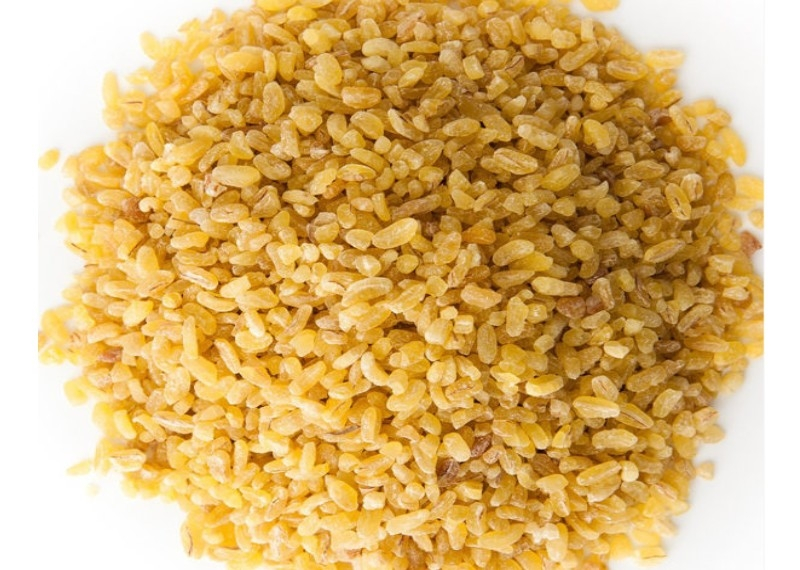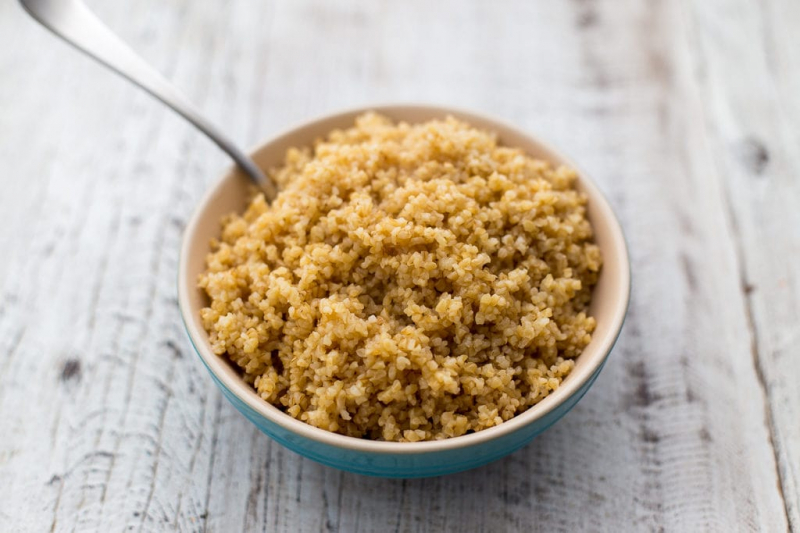Top 5 Health Benefits of Bulgur Wheat
Bulgur wheat is an extraordinarily adaptable whole grain that has long been used in Middle Eastern, Mediterranean, and West Asian cuisines. The healthy cereal ... read more...grain has traditionally been used to produce a range of foods such as tabbouleh and kisir salads, bulgur pilavi, kibbeh meat patties, fermented yogurt kishk, and kheer dessert. Bulgur is not only versatile due to its mild flavor, but it is also simple to cook and has several health advantages. Here are the best health benefits of bulgur wheat.
-
Bulgur is not only tasty and easy to cook, but it is also high in nutrients. It's a whole grain, which means you consume the complete wheat kernel, including the germ, endosperm, and bran. Whole grains provide all of the nutrients that the plant has to give. Refined wheat products, on the other hand, have a decreased nutritional value since the nutrient-rich germ and bran are removed, leaving just the carb-heavy endosperm. Bulgur is high in protein and fiber, as well as a range of vitamins and minerals. In fact, a 1-cup (91-gram) dose of fiber offers over 30% of the Daily Value (DV).
The whole grain is also a rich source of manganese, magnesium, and iron, and it has fewer calories than other whole grains like brown rice or quinoa. A 1-cup (182-gram) portion of cooked bulgur has the following nutrients:
- Calories: 151
- Carbs: 34 grams
- Protein: 6 grams
- Fat: less than 1 gram
- Fiber: 8 grams
- Vitamin B6: 8% of the DV
- Pantothenic acid: 13% of the DV
- Manganese: 48% of the DV
- Copper: 15% of the DV
- Magnesium: 14% of the DV
- Iron: 10% of the DV
- Niacin: 9% of the DV
- Thiamine: 9% of the DV
- Zinc: 9% of the DV
- Folate: 8% of the DV

High in nutrients 
High in nutrients -
Consuming fiber-rich meals such as whole grains, fruits, and vegetables benefits heart health. Bulgur is no exception. Several studies have found that eating whole grains reduces the incidence of stroke, heart disease, and heart failure, among other chronic conditions. One research of 400 Jordanians discovered that a high-fiber diet rich in legumes and bulgur greatly reduced the incidence of heart disease.
Consuming bulgur wheat will safeguard your heart health and aid in the prevention of cardiovascular illnesses and diseases. According to one research, adding 10 grams of fiber to one's diet reduces the chance of dying from coronary heart disease by 17-35%. Another study discovered that eating 50 grams of whole grains per day reduced the risk of heart disease by up to 20%.

May promote heart health 
May promote heart health -
Despite the fact that weight is impacted by a range of factors, multiple studies have linked increased fiber consumption to weight reduction and a reduced tendency to acquire weight. Overall, it is still unknown how dietary fiber affects weight. In some situations, it appears that quantities of different types of bacteria in your gut are implicated, whilst in others, other metabolic variables may also be involved.
Fiber may improve satiety and hence reduce calorie intake in some people, but it may also influence how much energy their bodies burn during the day. More research is needed to completely understand the relationship between fiber and weight reduction. However, eating bulgur alongside other fiber-rich foods as part of a balanced diet may help maintain a healthy weight and overall health.

May promote weight loss 
May promote weight loss -
Whole grains have a lower blood sugar response and insulin levels when compared to processed carbohydrates. According to some studies, healthy grains may also enhance overall insulin sensitivity. While fiber is frequently blamed for these benefits, plant chemicals found in whole grains may also play a role. Bulgur wheat is high in fiber and phytonutrients, which may aid with blood sugar regulation.
Over the last decade, several studies have found that consuming more whole grains is linked to decrease risks of type II diabetes. Eating whole grains has been linked to lower blood sugar levels and improved insulin sensitivity, which aids in the management of illnesses such as diabetes. Scientists aren't sure if these advantages are due to fiber or other components in the grain, but they do agree that whole grains like bulgur wheat assist your body's blood sugar regulation.

May help control blood sugar 
May help control blood sugar -
Consumption of whole grains, such as bulgur, on a regular basis, can stimulate the growth of beneficial intestinal flora. These bacteria create short-chain fatty acids (SCFAs), which help to maintain gut health and digestion. Furthermore, adequate consumption of fiber-rich foods such as bulgur may be useful in treating and avoiding digestive disorders such as constipation.
The health advantages of bulgur wheat stem mostly from its high fiber content as a whole grain. High-fiber grains aid digestion, intestinal health, and weight control. The FDA even confirms that high-fiber, low-fat diets can lower cancer risk and prevent coronary heart disease.

May support digestion and gut health 
May support digestion and gut health


























